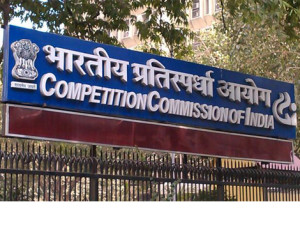LOYALTY REBATES AND DISCOUNTING SCHEMES BY ENTERPRISES IN INDIA
India, with its fast growing domestic firms and phenomenal brand building by the emerging companies has become one of the world‘s fastest growing economies. Competition in the market is ever increasing and in order to compete in the market, retain customers and increase consumer base, the companies adopt different schemes like giving hefty discounts and loyalty rebates.
Loyalty rebates are the refunds offered in exchange of exclusive agreements between the customer and the company. Such arrangements are prevalent in Indian e-commerce market in the form of cash backs offered by companies for buying goods and services from them, such cash could be used in future for buying goods or services from the same company. Some airlines offer extra travel miles to the customers for every mile they travel with them, these can be used in future for buying tickets from the same airlines. Some companies offer credits which can be used as cash while buying goods or services from those companies. These schemes are not only favorable for attracting customers by offering goods and services at lower price but also helps in retaining them.
Under Indian competition law, fidelity rebates and discounts are not prohibited per se but they can be probed by CCI for the schemes resulting in exclusive agreements which can be anti-competitive. These practices are considered legitimate for the purpose of sustaining and competing in the market on the merit of business when there is proper justification. The question of such practices being anti- competitive arise when the conduct of enterprises shows their intention to distort competition in the market by creating entry barriers and driving out competition for same products and services.
The Competition Act, 2002 under section 3 prohibits “anti – competitive” agreements entered into by any enterprise. Specifically section 3(4) deals with vertical agreements, the loyalty rebates and discounts and they can be considered anticompetitive if they have appreciable adverse effect on competition. Loyalty rebates when offered by dominant players in the market can also be scrutinized under section 4(1) of the act which states no enterprise shall abuse its dominant position.
The excessive loyalty rebates and heavy discounts provided by any enterprise are seldom objected by CCI. As in the case of provision of free 4G internet services by Reliance Jio[1], CCI took the view in absence of dominant position in the market, the question of abuse does not arise. Demonstration of reduction of competition or elimination of any competitor is required to hold a company in breach of provisions. Dominance in the relevant market and anti-competitive objective are to be proved for making such rebates and discounts anti-competitive.
In the case of HMIL[2] , CCI examined various issues including RPM (Resale Price Maintenance) and concluded that setting a limit on maximum discount is RPM and that analysis of this shall include intra and inter brand competition along with the factors given under section 19(3) of the act. CCI noted that HMIL has made it compulsory for all dealers to buy engine oil from only two designated venders and noncompliance leading to termination of dealership agreement was a tie-in agreement and was in contravention of section 3(4) (a) of the Act. CCI took a pro-business approach in deciding the case affirming that exclusivity is not anti-competitive per se [3].
The traditional approach of EU as reinforced by ECJ in the Tomra[4]decision was the per se approach , a rebate programme by a dominant firm will be per se violation if such rebates are given in exchange for customer loyalty and are not based on efficiencies or genuine cost savings. But in the case of Intel [5], ECJ reversed the ruling considering the Commission Guidance Paper[6] , Commission diverted from the per se approach stating that the analysis to be made is that whether the rebate programme would drive out efficient competitors from the market. If such practice leads to exit of an inefficient competitor from the market then such practice is not anti-competitive but a part of the competition. This is a relief for the companies as they have better scope for making compliant and innovative rebate schemes without fearing the inclusion in category of abusive rebate.
The business-friendly approach adopted by both CCI and ECJ are in favor of market since rebates are often pro-competitive. Such schemes adopted by companies promote other equally efficient competitors to become more competent. The Commissions have changed their view from , heavy discounts and rebates offered by dominant companies leads to the driving out of potential and present competitors to the pro competitive effects like the contest between companies to lower cost and become more innovative, effective and advance to survive competition. The consumer being at the end will receive benefits fulfilling the objective of consumer benefit. In the ever improving technology and fast evolving market, the restriction of freedom of companies will limit innovation not being in business interest.
[1] In Re: Bharti Airtel Limited v. Reliance Industries Limited and others, Case No. 03 of 2017, CCI, decided on June 6, 2017
[2] In Re: Fx Enterprise Solutions India Pvt. Ltd. and Hyundai Motor India Limited, Case No. 36 & 82 of 2014, CCI, decided on June 14, 2017
[3] Dr. L.H. Hiranandani Hospital V Competition Commission of India & another, Appeal No. 19 of 2014
[4] Tomra Systems and Others v Commission Case C-549/10 P [2012] ECR 0000.
[5] Intel v Commission, EU:T:2014:547, appealed C-413/14 P – Intel Corporation.
[6] Communication from the Commission: Guidance on its enforcement priorities in applying Article 82 of the EC Treaty to abusive exclusionary conduct by dominant undertakings, OJ C 45, 24.2.2009, p. 7–20







